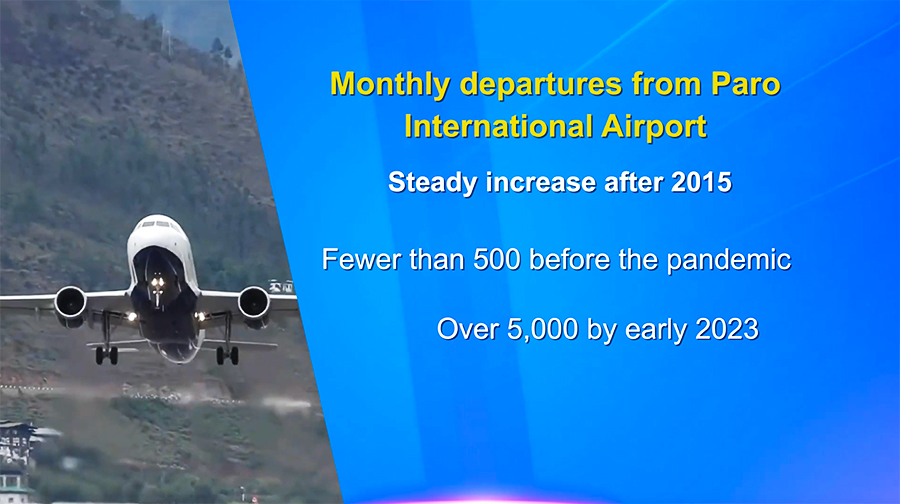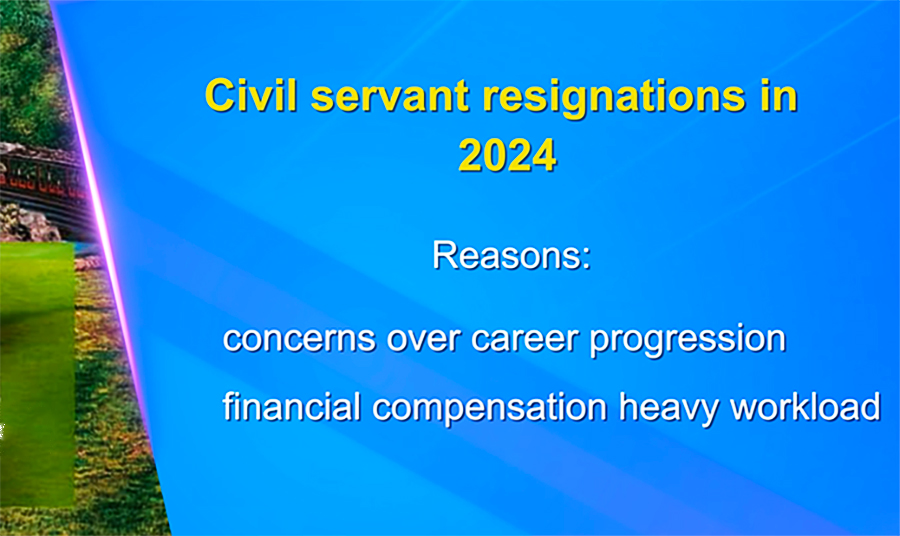 The latest World Bank Bhutan Development Update flags brain drain and weakening public service delivery due to rapid external migration trend observed in recent years. The annual report launched yesterday reveals that migration doubled between 2020 and 2024 with the large share of migrants being youth and civil servants. It outlines the drivers, challenges, and future implications of this migration trend and provides recommendations to manage it within the country.
The latest World Bank Bhutan Development Update flags brain drain and weakening public service delivery due to rapid external migration trend observed in recent years. The annual report launched yesterday reveals that migration doubled between 2020 and 2024 with the large share of migrants being youth and civil servants. It outlines the drivers, challenges, and future implications of this migration trend and provides recommendations to manage it within the country.
According to the report, Bhutanese leaving for Australia steadily increased after 2015 and doubled within 4 years from 12,424 in 2020 to 25,363 last year.
 Monthly departures from Paro International Airport also increased from fewer than 500 before the pandemic to over 5,000 by early 2023.
Monthly departures from Paro International Airport also increased from fewer than 500 before the pandemic to over 5,000 by early 2023.
A large share of migrants are young and educated, with 53 per cent holding university degrees and 49 per cent being civil servants.
 The report shows that from 2013 resignations in 2024 in the civil service, 1400 were voluntary due to concerns over career progression, financial compensation, and heavy workload among others.
The report shows that from 2013 resignations in 2024 in the civil service, 1400 were voluntary due to concerns over career progression, financial compensation, and heavy workload among others.
The education sector accounts for 25 per cent of migrants, and 69.5 per cent of civil service resignations last year came from the education and health sectors.
According to the World Bank, this trend has led to a loss of skilled labour, particularly in the education and health sectors, contributing to brain drain and weakening public service delivery in Bhutan.
Cecile Fruman, World Bank Acting Country Director for Bhutan said “This is a classic case of brain drain. These are truly the most skilled people who are leaving the country and this directly impacts the economy. We have seen the weakening of some of the civil service and the weakening of the economy overall.”
According to the report, key factors driving the trend include, limited job opportunities in the private sector, and dissatisfaction with public sector conditions, low wages and limited career growth.
In contrast, higher earning potential abroad, better educational opportunities, and flexible visa policies, particularly in countries like Australia are attributed to the emigration of Bhutanese to foreign countries.
The World Bank recommends that Bhutan manage migration by creating more and better job opportunities, particularly in the private sector.
Cecile Fruman said “If Bhutan wants to keep some of the talents here, there need to be more deliberate strategies, approaches and policies. More importantly, there needs to be a vibrant private sector because people are leaving because they feel that they don’t have the right opportunities. They feel that some of the opportunities in private sectors are too constraint and they don’t have the opportunity to thrive and grow in this economy”
It also suggests improving working conditions in the civil service to retain skilled workers. In the health sector, the report suggests the government to focus on retention through better compensation, career growth, and reduced administrative burdens. Likewise, in the education sector, it recommends prioritising improved infrastructure and teacher development to boost skills and motivation.
Moreover, it also recommends policymakers to strengthen education and training systems by expanding academic and technical study options within the country.
Cecile Fruman said “We now have policy recommendations, and we are also looking at international experience. We brought a number of stakeholders last week to Thimphu where we had the first South Asia labour mobility conference. Based on all of this data, the evidence and global experience, we are now partnering with the government of Bhutan to see what are the best policies that can help retain people or bring them back.”
Meanwhile, the Department of Employment and Entrepreneurship in a panel discussion at the launch event said it is important for Bhutan to build attractive and conducive environment in terms of remuneration and working conditions to be able to attract the Bhutanese workforce that is lost overseas.
Sangay Chozom
Edited by Kipchu









